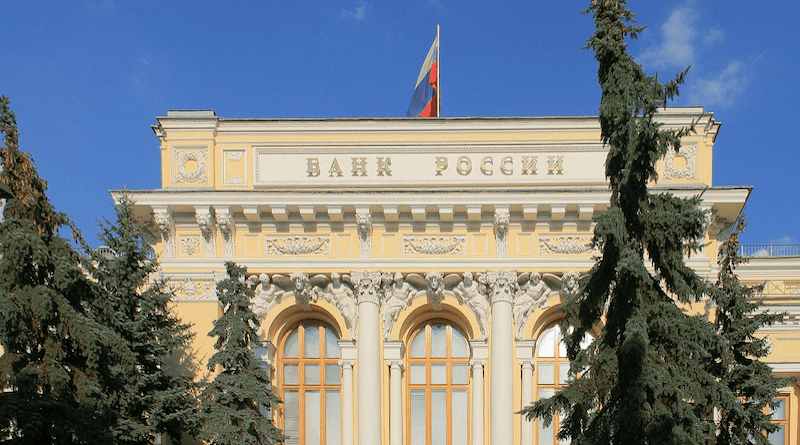EU Proposes Options To Seize Frozen Russian Assets, But Legal Concerns Remain
By EurActiv
By Alexandra Brzozowski
(EurActiv) — The European Commission on Wednesday (30 November) laid out legal options for the confiscation of Russian state and private assets to be used for funding Ukraine’s reconstruction.
“We have blocked €300 billion of the Russian Central Bank reserves, and we have frozen €19 billion of Russian oligarchs’ money,” European Commission President Ursula von der Leyen said in a statement.
The ultimate goal is to use those Russian assets confiscated by the member states to support the reconstruction of Ukraine and compensate the country for the damages caused by the Russian invasion.
“We will work on an international agreement with our partners to make this possible. And together, we can find legal ways to get to it,” von der Leyen added.
According to the options paper, the EU executive now seeks “clarifying the international context, identifying ways to strengthen the tracing and identification of assets as preliminary steps for potential confiscation and exploring avenues that could lead to the confiscation of frozen Russian assets”.
By EU estimates, by 25 November 2022, the total amount of private assets frozen in the EU within the bloc’s sanctions framework amounted to almost €18.9 billion.
When it comes to Russian public assets, the precise total amount ‘immobilized’ in the EU due to transaction prohibitions is currently unknown.
The problem, however, currently is that in most EU member states, seizing frozen assets is only legally possible where there is a criminal conviction.
Beyond this, assets of blacklisted Russian citizens are difficult to freeze or seize as they are registered as belonging to family members or front people.
Sanctions evasion
When it comes to private individuals and entities, the fact that their assets are frozen because they are on an EU sanction list does not directly mean that it is possible to confiscate them.
In May, the European Commission unveiled plans to make it easier to confiscate frozen assets linked to serious illegal activities and suspected criminals, including those evading EU sanctions against Russia.
On Monday (28 November), the EU gave itself the legal authority to take action against anyone who helps Russia avoid its sanctions as member states unanimously agreed that violating restrictive measures against Russia would be considered an ‘EU crime’ across the bloc.
This is expected to make it easier to add individuals and entities from countries outside the EU to sanctions lists set up to punish existing actions such as Russia’s invasion of Ukraine.
It is also aimed at standardising the interpretation and enforcement of EU sanctions law across the 27 member states, which often lack specific legal frameworks.
However, this would only be the case if there is a criminal offence, with the EU expected to argue each case in court, which could take years.
Since March, the European Commission has also had an EU Sanctions Whistleblower Tool that can be used to report on “past, ongoing or planned” EU sanctions violations, as well as attempts to circumvent these.
Brussels has also set up a ‘Freeze and Seize’ Task Force for EU-wide coordination in the enforcement of sanctions and in the field of asset freezes.
Russian central bank
The other option concerns Russian Central Bank assets, which constitute the larger money pot but are more difficult to access as they are usually covered by state immunity.
The document points towards a UN convention on jurisdictional immunities of foreign states and their property, which is however not yet in force.
Nevertheless, the European Commission considers the possibility of looking at both short-term and long-term seizure, according to the options paper.
“We know that within the EU and the G7 partners there are around €300 billion of Russian Central Bank assets that are immobilised, meaning Russia cannot make use of them,” an EU official said.
“We think that we can create a structure that would allow us to actually actively manage these assets and use the proceeds of managing those assets, with the returns to be able to support Ukraine,” the official added.
Russia says the freezing of its central bank’s reserves and the assets of its citizens are illegal.
Legal experts point out that from an international law perspective, the use of Russian central bank assets would be legally difficult without Russia’s consent.

